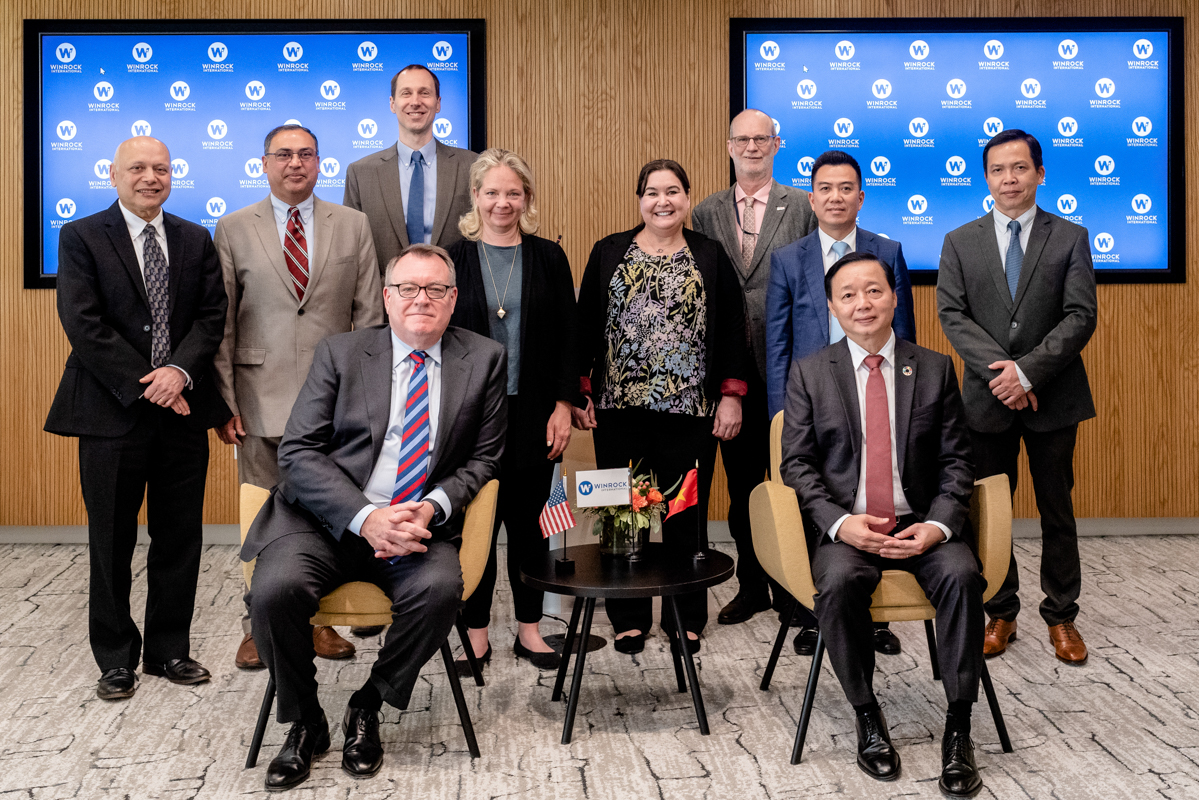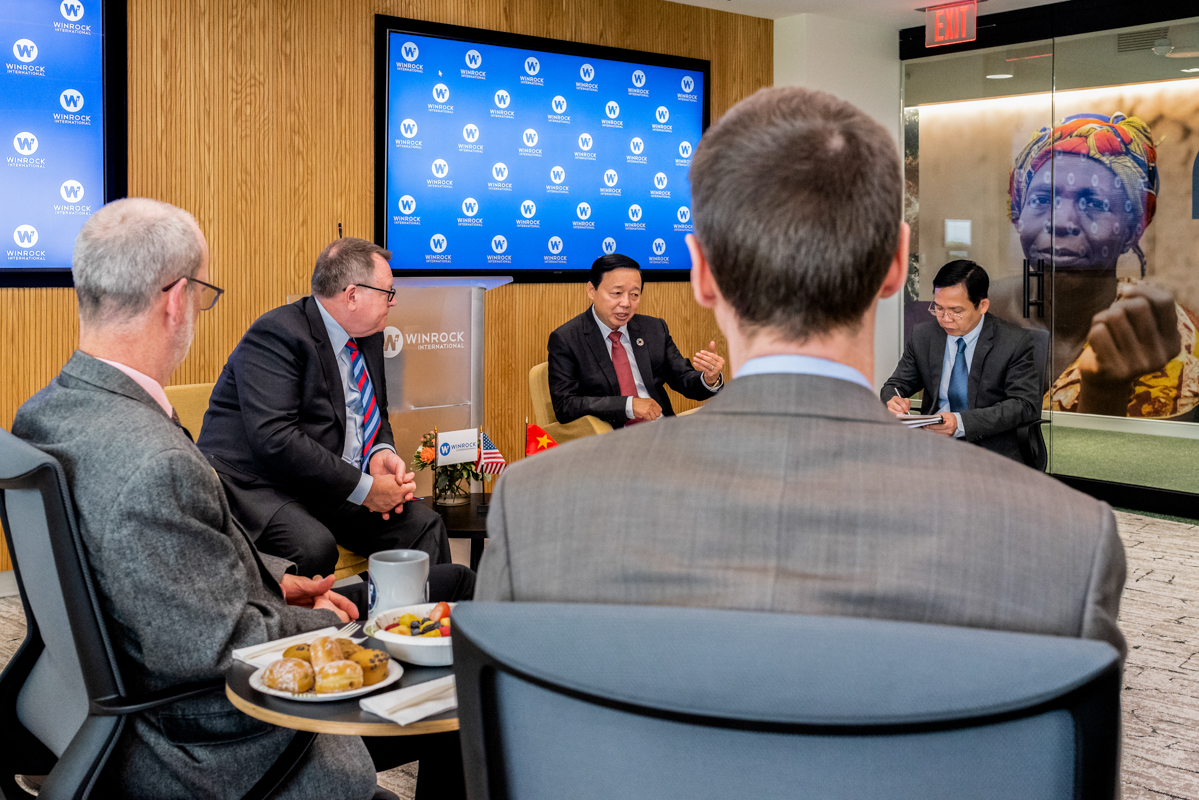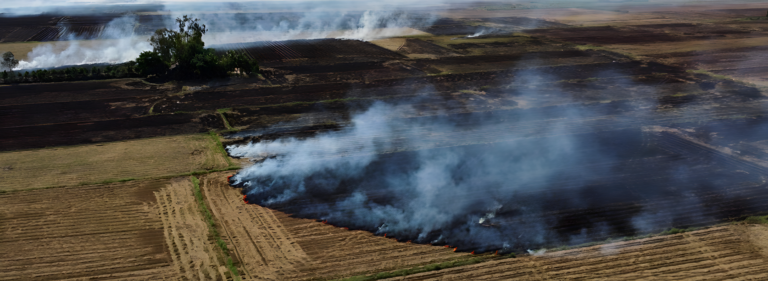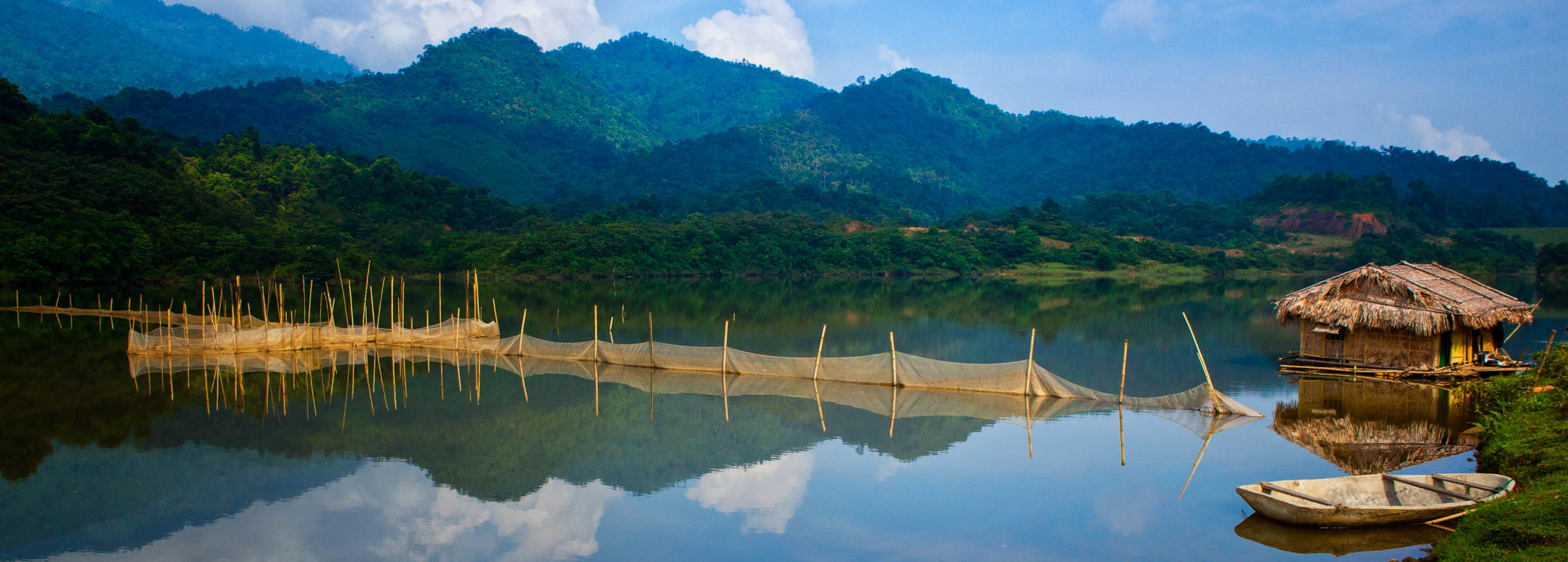
Partnering with Vietnam on Environmental Protection, Pollution Reduction and Climate Action
Winrock’s collaboration with communities, businesses and government in Vietnam on environmental initiatives ranging from forest and water protection to policy development and pollution prevention stretches back two decades. Today, as Vietnam pursues ambitious new environmental goals including its recent public commitment to achieve net zero by 2050, continued and deepened engagement is more important than ever.
On May 11, Vietnam’s Minister of Natural Resources and Environment (MONRE) emphasized the need to strengthen ties during a meeting with USAID Asia Bureau’s Todd Johnson, senior natural resources officer, and Winrock President and CEO Rodney Ferguson at Winrock’s offices in Virginia. The meeting occurred on the sidelines of the first-ever special summit between leaders of the Association of Southeast Asian Nations (ASEAN) and the U.S., organized by President Joe Biden and held at the White House and other locations in Washington, D.C.
Minister Trần Hồng Hà, in the U.S. as part of Vietnam’s delegation to ASEAN, took time to visit Winrock, an important partner to Vietnam as the nation mobilizes to create a cleaner, greener future.

As Vietnam’s top environmental official, Minister Hà oversaw development of a comprehensive new environmental protection law, enacted in 2022, covering critical topics including carbon trading, environmental impact assessments, and extended producer responsibility, among other issues. Extended producer responsibility holds manufacturers and importers responsible for environmental damage caused by the making, use, or disposal of certain products, such as plastics. One part of the new law was developed with assistance by a U.S. Department of State-funded activity implemented by Winrock.
“Winrock has a deep history of successful collaboration with communities and substantive technical and advisory assistance to Vietnam’s government on environmental, natural resource protection and climate change issues,” Ferguson said. “Those include recent projects with the Government of Vietnam funded by the U.S. Agency for International Development (USAID), the new Reducing Pollution activity which is currently underway, and the Vietnam Forests and Deltas project, which ended in 2021. We also implement the U.S. Department of State-funded Private Investment for Enhanced Resilience activity,” he said.
“We are fully committed to building on this foundation and expanding work with MONRE, including initiatives that further protect the environment and safeguard Vietnam’s precious natural resources. We’re actively looking at additional ways to help Vietnam inclusively engage community members, especially women and youth, to become advocates and citizen scientists to help solve big challenges like waste reduction, and climate change adaptation and mitigation. It’s possible – in fact it’s already being done in Vietnam.”
The USAID/Vietnam Mission and USAID’s Asia Bureau have emphasized the importance of strengthening ties with MONRE as it confronts climate change and expands and codifies protection for the environment. The Reducing Pollution activity, implemented by Winrock, is the first such USAID project to engage directly with MONRE as a government counterpart.

During the visit, Minister Hà and Ferguson discussed the importance of private sector engagement in environmental protection and how Vietnam can achieve its net zero by 2050 emission reduction goals, announced at COP26, including establishment and operation of the domestic carbon market. The two reflected on Winrock and USAID’s long history of working in Vietnam on environment and climate change issues, and emphasized the importance of the new USAID Reducing Pollution activity, which includes raising public awareness of the need to reduce plastic waste, support for recycling activities, and technology innovation. Launched in 2021, the project is bringing government, businesses and communities together in a coordinated effort to reduce pollution, which contributes to climate change in part because of methane produced through anaerobic decay and emissions of nitrous oxide from solid waste combustion.
Minister Hà expressed his deep appreciation for USAID and Winrock’s support, and affirmed MONRE’s commitment to addressing climate change and environmental pollution challenges in Vietnam.
Winrock’s Brian Bean, chief of party of the Reducing Pollution activity, also attended the meeting. “We are thrilled to start the latest chapter in our collaboration with MONRE on the new USAID Reducing Pollution project, which brings together government, business, and communities to address pollution issues through a collective impact approach. While we start this new project, we are also seeking new opportunities to work with MONRE to help Vietnam reach its ambitious net zero emissions goals.”
Related Projects

USAID Reducing Pollution
The USAID Reducing Pollution activity is a five-year project that supports locally-driven initiatives that substantially reduce environmental pollution in Vietnam through a collective impact approach. The project will build the capacity of government, local nongovernmental organizations and private sector partners to prevent, mitigate and reduce environmental pollution, and increase the capacity of stakeholders to generate, […]
Vietnam Forests and Deltas (VFD)
The USAID Vietnam Forests and Deltas Program supports Vietnam’s transition to resilient, sustainable development. The first phase of the program (2012-2018) helped put national policies and strategies into practice to respond to environmental change, with a focus on the forestry and agriculture sectors, disaster risk reduction, and strengthening livelihoods. Beginning in 2018, the program’s second […]
